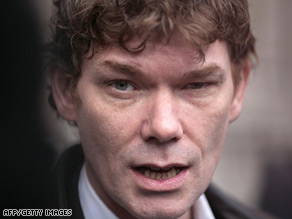
Pakistan at the moment is passing through contestations of a kind and intensity not witnessed since 1971. Provinces are contesting the authority of the centre and local councils that of the provincial government.
The judiciary is pitched against the executive and political parties against each other. On a more deadly footing, the army is confronting the militancy it once spawned.
Whether it is conciliatory bargaining, the use of physical force or intervention by the courts, all this is not dampening but exacerbating mutual antagonism. A continuous and free debate in parliament could possibly bridge differences and put the country back on the rails. But that is precisely what is not being tried.
The will of the people in a parliamentary democracy, howsoever imperfect it might be (as indeed ours is), must find expression in parliament and not in the judgments of courts, the commands of generals or the rhetoric of leaders. Why did the country have to go through the agony and expense of elections in very trying circumstances if national issues were still to be decided over powwows at Raiwind, in pleas at the Supreme Court or at the battles in Waziristan, or if Baloch sardars and rebel youth were to be left to contemplate the destiny of their province in sullen isolation? These questions must haunt the elected representatives of the people, irrespective of their political affiliation.
Seeking a consensus, or scheming, outside parliament resulted in martial law in the past. Let there be no complacency. It will happen again if our political leaders do not resolve all contested issues by majority vote in parliament. Going back to the polls whenever a government has lost, or fears losing the majority or is unable to conduct the business of state is the only way to keep the military out — political bravado or judicial pronouncements cannot.
The obvious task before parliament is to deal with the 17th Amendment. But it is more crucial to review the legislative lists to transfer more subjects to the provinces. Instead of following the procedure laid down in the constitution — two-thirds of the members of the National Assembly and Senate voting for amendments — the subject is languishing in a committee while uncertainty and unrest increase. And still the scope of the committee does not cover provincial autonomy or discrimination on grounds of race and religion which are the basic causes of the unrest.
Uncertainty is also caused by a number of questions being raised before the Supreme Court. Being political in nature, these should appropriately be decided by the legislators. Nothing is more inadvisable than to drag the judges of a judiciary fast becoming politicised deeper into politics. The Supreme Court should be spared the unenviable task of reversing its own judgments or determine the status of its own judges or the legality of the actions of the former chief justice. Issues more troublesome are sure to surface than those the petitions seek to settle. Legal wrangling is likely to go on till the cows come home.
The parliament can and must legislate to clear the mess by amending the constitution if necessary and let the courts work for the people rather than for politicians and judges. It is exasperating to see judges of the Supreme Court hearing for hours on end the legality of a judge’s oath while people rot in jails for years before their pleas for bail or appeals against convictions are heard. Civil disputes linger for generations.
The judges need to demonstrate their awareness about the widespread discontent caused by delay and bribery in the judicial system rather than engage for days on end with claims of contending politicians seeking their fortunes in an uncertain transition from one regime to another. Independence has come to the judiciary because of the people’s support. It should be used to the people’s benefit and not to settle scores. Parliament, and not the judiciary, should take care of closed extra-constitutional transactions.
Parliament should also fix by law the number of judges for the Supreme Court and high courts, as well as the criteria and procedure for their appointment. The Supreme Court should be much, much smaller (one has not heard of an apex court anywhere as large as ours) and its jurisdiction restricted to the interpretation of laws and the enforcement of fundamental rights.
The highest court of the land needs to be lifted out of the political morass into which it has fallen. Particularly disturbing has been the desire expressed by the Lahore High Court chief justice, Khawaja Sharif, before an applauding gathering of lawyers, to make an example of the culprits of the past and not to permit a “night raid” ever again. He should have been the last to breach the principle that judges speak only through their judgments. One may respectfully ask how a judge would stop a general in the dead of night.
The devastation of the civil services is complete and obvious. But the present government, like those preceding it, shows no inclination to make merit and need the essential criteria for the recruitment of civil servants — teachers, doctors, engineers. Doubts are also cast on the impartiality and integrity of commissions and committees even when recruitment is made through them.
The administration has indeed become dysfunctional as Prime Minister Gilani observed the other day. He blamed the law and rules for it. In fact it is made dysfunctional by political interests overriding the laws. The door to coups, or violent change, thus remains open notwithstanding what Justice Khawaja Sharif has to say. And when the prime minister speaks of the need for reforms, the lurking fear is that the administration is about to get yet another mauling. That is what all previous reforms had done.
kunwaridris@hotmail.comThe judiciary is pitched against the executive and political parties against each other. On a more deadly footing, the army is confronting the militancy it once spawned.
Whether it is conciliatory bargaining, the use of physical force or intervention by the courts, all this is not dampening but exacerbating mutual antagonism. A continuous and free debate in parliament could possibly bridge differences and put the country back on the rails. But that is precisely what is not being tried.
The will of the people in a parliamentary democracy, howsoever imperfect it might be (as indeed ours is), must find expression in parliament and not in the judgments of courts, the commands of generals or the rhetoric of leaders. Why did the country have to go through the agony and expense of elections in very trying circumstances if national issues were still to be decided over powwows at Raiwind, in pleas at the Supreme Court or at the battles in Waziristan, or if Baloch sardars and rebel youth were to be left to contemplate the destiny of their province in sullen isolation? These questions must haunt the elected representatives of the people, irrespective of their political affiliation.
Seeking a consensus, or scheming, outside parliament resulted in martial law in the past. Let there be no complacency. It will happen again if our political leaders do not resolve all contested issues by majority vote in parliament. Going back to the polls whenever a government has lost, or fears losing the majority or is unable to conduct the business of state is the only way to keep the military out — political bravado or judicial pronouncements cannot.
The obvious task before parliament is to deal with the 17th Amendment. But it is more crucial to review the legislative lists to transfer more subjects to the provinces. Instead of following the procedure laid down in the constitution — two-thirds of the members of the National Assembly and Senate voting for amendments — the subject is languishing in a committee while uncertainty and unrest increase. And still the scope of the committee does not cover provincial autonomy or discrimination on grounds of race and religion which are the basic causes of the unrest.
Uncertainty is also caused by a number of questions being raised before the Supreme Court. Being political in nature, these should appropriately be decided by the legislators. Nothing is more inadvisable than to drag the judges of a judiciary fast becoming politicised deeper into politics. The Supreme Court should be spared the unenviable task of reversing its own judgments or determine the status of its own judges or the legality of the actions of the former chief justice. Issues more troublesome are sure to surface than those the petitions seek to settle. Legal wrangling is likely to go on till the cows come home.
The parliament can and must legislate to clear the mess by amending the constitution if necessary and let the courts work for the people rather than for politicians and judges. It is exasperating to see judges of the Supreme Court hearing for hours on end the legality of a judge’s oath while people rot in jails for years before their pleas for bail or appeals against convictions are heard. Civil disputes linger for generations.
The judges need to demonstrate their awareness about the widespread discontent caused by delay and bribery in the judicial system rather than engage for days on end with claims of contending politicians seeking their fortunes in an uncertain transition from one regime to another. Independence has come to the judiciary because of the people’s support. It should be used to the people’s benefit and not to settle scores. Parliament, and not the judiciary, should take care of closed extra-constitutional transactions.
Parliament should also fix by law the number of judges for the Supreme Court and high courts, as well as the criteria and procedure for their appointment. The Supreme Court should be much, much smaller (one has not heard of an apex court anywhere as large as ours) and its jurisdiction restricted to the interpretation of laws and the enforcement of fundamental rights.
The highest court of the land needs to be lifted out of the political morass into which it has fallen. Particularly disturbing has been the desire expressed by the Lahore High Court chief justice, Khawaja Sharif, before an applauding gathering of lawyers, to make an example of the culprits of the past and not to permit a “night raid” ever again. He should have been the last to breach the principle that judges speak only through their judgments. One may respectfully ask how a judge would stop a general in the dead of night.
The devastation of the civil services is complete and obvious. But the present government, like those preceding it, shows no inclination to make merit and need the essential criteria for the recruitment of civil servants — teachers, doctors, engineers. Doubts are also cast on the impartiality and integrity of commissions and committees even when recruitment is made through them.
The administration has indeed become dysfunctional as Prime Minister Gilani observed the other day. He blamed the law and rules for it. In fact it is made dysfunctional by political interests overriding the laws. The door to coups, or violent change, thus remains open notwithstanding what Justice Khawaja Sharif has to say. And when the prime minister speaks of the need for reforms, the lurking fear is that the administration is about to get yet another mauling. That is what all previous reforms had done.






